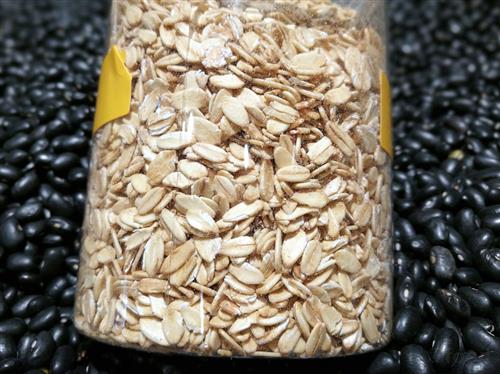Who should not eat coarse grains
1, people who have problems with digestion
People with digestive problems (eg, gastric ulcers, duodenal ulcers) are not suitable for eating whole grains because these ingredients are rough and physically rubbing against the gastrointestinal tract, causing pain in the wound. People who are prone to flatulence are more uncomfortable to eat.

2, people suffering from digestive diseases
If you have cirrhosis or esophageal varices or gastric ulcers, eating a lot of coarse grains can cause venous bleeding and ulcer bleeding. Reminder: If you have gastrointestinal problems, do not eat too much buckwheat, because buckwheat is easy to have indigestion problems; also consider eating soybeans to avoid flatulence.
3, anemia, less calcium people
The high levels of phytic acid and oxalic acid in cereals will inhibit calcium, especially the absorption of iron. Therefore, people who are deficient in calcium and anemia must be smart to eat. For example, milk cannot be eaten with rice and it will not absorb calcium. quality.
In addition, the blood-borne iron contained in red meat may not be affected by phytic acid. However, most elderly people do not dare to eat red meat. If you eat whole grains for health reasons, it will be very bad. Some people will eat too much of the grains, and the anemia has been Can't improve. The same is true for women. If you have problems with anaemia and you like to eat grains, you must add red meat. Half of the meat source of the day must be red meat.
4, kidney patients
Instead, kidney patients need to eat delicate white rice. Because of the high protein, potassium, and phosphorus content of whole grains, it is easy to eat as a staple food and the patient cannot tolerate it.
5, diabetic people
People with diabetes need to control their starch intake. Even if they eat whole grains, they have to control their weight. In addition, although the grains may help reduce blood sugar because of enough fiber, health care workers encourage diabetics to eat more. However, once diabetics have kidney disease, they can't eat rice and eat rice, and many patients are confused. Endlessly.
6, gout patients
When a gout suffers from eating more beans, it will cause an increase in uric acid, and the intake of beans in grains will be reduced to a minimum.
7, people with low immunity
If the long-term daily intake of cellulose exceeds 50 grams, it will make people's protein supplement obstructed, reduced fat utilization, resulting in bone, heart, blood and other organs damage, reduce the body's immune capacity.
8. People with heavy physical activity
Coarse grain has low nutritional value and low energy supply, and it provides insufficient nutrition for those who are engaged in heavy physical labor.
9. Growth and development teenagers
Due to the special requirements of nutrients and energy for growth and development and physiological requirements for hormone levels, coarse grains not only hinder the absorption of cholesterol and its conversion into hormones, but also hinder the absorption and utilization of nutrients.
10, the elderly and children
Because the digestive function of the elderly is diminished, and the child's digestive function is not yet perfect, digesting a large amount of dietary fiber is a great burden on the gastrointestinal tract. Moreover, the absorption and utilization of nutrients is relatively low, which is not conducive to the growth and development of children.
drainage catheter, pigtail biliary nephrostomy drainage catheter, pigtail drainage catheter
Anesthesia Medical Co., Ltd. , https://www.jssinoanesthesia.com